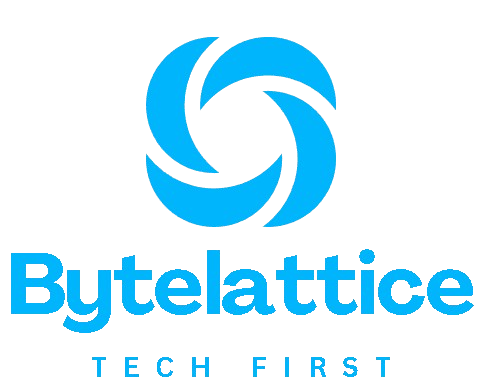
How To Pay Bills And Shop Online Using Cryptocurrency
Cryptocurrency has transformed from a niche investment vehicle into a practical payment method that millions use daily. The digital currency revolution isn’t just about trading Bitcoin anymore—it’s about using crypto assets for everyday purchases and bill payments.
The adoption of cryptocurrency payments has exploded in recent years. Major companies, such as Tesla, Microsoft, and AMC Theaters, now accept cryptocurrency payments directly. Meanwhile, payment processors have enabled millions of traditional merchants worldwide to use digital currency. This comprehensive guide will walk you through everything you need to know about spending cryptocurrency in the real world.
Setting Up and Managing a Crypto Wallet
Software wallets offer convenience for everyday transactions. Popular options include MetaMask, Trust Wallet, and Coinbase Wallet. These applications run on your smartphone or computer, making them perfect for quick purchases and bill payments. Mobile wallets provide instant access to your crypto assets, allowing you to scan QR codes at checkout or copy wallet addresses for online payments.
Hardware wallets provide maximum security for larger amounts. Devices like Ledger and Trezor store your private keys offline, protecting against online threats. While less convenient for frequent transactions, they’re essential for storing significant crypto holdings safely.
Self-custody wallets give you complete control over your digital assets. Unlike exchange wallets, you hold the private keys, meaning you’re solely responsible for the security of your funds. This approach aligns with the cryptocurrency’s decentralized philosophy, but it requires careful backup procedures.
Setting up your wallet involves generating a seed phrase—typically 12 or 24 words that can be used to restore your wallet if your device fails. Store this phrase securely offline, as anyone with access can control your funds. Never share your seed phrase or private keys with anyone.
Acquiring Cryptocurrency

Cryptocurrency exchanges like Coinbase, Binance, and Kraken provide the simplest path to owning cryptocurrency. These platforms connect your bank account or credit card to facilitate the purchase of popular cryptocurrencies, such as Bitcoin, Ethereum, and stablecoins. Exchange users benefit from competitive rates and regulatory compliance, though they sacrifice some privacy and control.
Peer-to-peer platforms enable direct transactions between individuals. Services like LocalBitcoins and Paxful connect buyers and sellers in your area, often supporting cash transactions or bank transfers. This method provides more privacy but requires additional caution to avoid scams.
Dollar-cost averaging helps manage price volatility when acquiring crypto. Instead of making one large purchase, you buy smaller amounts regularly over time. This strategy mitigates the impact of price fluctuations and allows you to build your crypto holdings gradually.
Understanding the Benefits of Crypto Transactions
Cryptocurrency payments offer several advantages over traditional payment methods, though they come with unique considerations.
Transaction fees often cost less than credit card processing fees, especially for international payments. Bitcoin transactions typically cost a few dollars, regardless of the amount, while traditional wire transfers can charge $25-$ 50. Ethereum-based stablecoins offer even lower fees for certain transactions.
Speed varies by cryptocurrency, but it generally exceeds that of traditional banking. Bitcoin payments are confirmed within 10-60 minutes, while some altcoins process in seconds. This speed advantage becomes particularly significant for time-sensitive payments or international transactions that may take days to process through traditional systems.
Privacy features protect your financial information differently than credit cards. Cryptocurrency transactions don’t require sharing personal details with merchants, reducing identity theft risks. However, most blockchains maintain public ledgers, so transactions aren’t completely anonymous.
Global accessibility eliminates currency conversion hassles. You can pay merchants worldwide using the same digital currency, avoiding exchange rate fees and delays. This benefit is invaluable for frequent international shoppers or remote workers.
Paying Directly to Merchants Accepting Cryptocurrency
Major retailers have joined the crypto payment revolution. Microsoft accepts Bitcoin for Xbox games and apps. Overstock.com was among the first major retailers to embrace cryptocurrency payments. Newegg allows crypto purchases for computer hardware. These companies typically partner with payment processors to handle the technical aspects while providing customers with crypto payment options.
Online platforms are increasingly offering cryptocurrency at checkout. Many e-commerce sites display cryptocurrency logos alongside traditional payment methods. The checkout process usually involves selecting crypto as your payment method, choosing your preferred currency, scanning a QR code, or copying a wallet address.
Local businesses are also adopting cryptocurrency payments. Coffee shops, restaurants, and service providers use payment processors like BitPay or Square to accept digital currency. These solutions automatically convert cryptocurrency to fiat currency, protecting businesses from price volatility while serving crypto-savvy customers.
Using Payment Platforms for Non-Crypto Merchants
Payment platforms bridge the gap between cryptocurrency holders and traditional merchants who don’t accept crypto directly.
BitPay pioneered this space and remains a leading solution. Their platform converts your cryptocurrency into a traditional currency that merchants receive. You can use BitPay at hundreds of thousands of locations worldwide, from online stores to brick-and-mortar retailers. The service supports multiple cryptocurrencies and provides instant payment confirmation.
Crypto debit cards function like traditional payment cards but draw from your cryptocurrency balance. Companies like Crypto.com, Coinbase, and BlockFi offer these cards, which are accepted by any merchant that accepts Visa or Mastercard. Some cards even provide cashback rewards in cryptocurrency.
Gift card platforms convert crypto into store-specific gift cards. Services like Bitrefill and eGifter enable you to purchase gift cards for hundreds of popular brands using cryptocurrency. This approach works well for frequent shoppers at specific retailers, though it requires planning.
Alternatives for Spending Cryptocurrency
Several creative methods help you spend cryptocurrency when direct payment isn’t available.
Peer-to-peer marketplaces connect cryptocurrency holders with individuals seeking to make purchases. Pay someone’s credit card bill in exchange for them buying items you want. These arrangements require trust and clear communication but can work well for large purchases.
Crypto lending platforms let you borrow against your digital assets without selling them. You keep your cryptocurrency while accessing cash or credit for purchases. This strategy works particularly well during market uptrends when you expect your crypto to appreciate.
Over-the-counter trading offers an alternative option for large transactions. OTC desks facilitate private trades between individuals or institutions, often at better rates than public exchanges. This method is suitable for significant purchases, such as real estate or vehicles.
Paying Bills with Cryptocurrency
BitPay offers bill payment services for utilities, credit cards, and other regular expenses. You can pay everything from electricity bills to credit card debt using Bitcoin or other supported cryptocurrencies. The service handles conversion and delivery to your service providers.
Specialized platforms focus specifically on crypto bill payments. Services like LivingRoomofSatoshi (in Australia) and Coins.ph (in the Philippines) cater to local markets with direct bill payment options. These platforms often provide better rates and faster processing than general-purpose solutions.
Some utility companies accept cryptocurrency directly. Miami’s city government accepts Bitcoin for certain services. Several smaller utility companies have begun accepting cryptocurrency payments, although this remains uncommon in most areas.
Understanding Risks and Market Volatility
Price volatility represents the biggest challenge for crypto payments. The value of your digital currency can fluctuate significantly between the initiation and completion of a transaction. What costs 0.001 Bitcoin today might cost 0.0015 Bitcoin tomorrow. Stablecoins like USDC and Tether help address this issue by maintaining relatively stable values.
Network congestion can cause delays in transactions and increase fees. During busy periods, the Bitcoin and Ethereum networks become congested, resulting in higher transaction costs and longer confirmation times. Planning payments during off-peak hours can minimize these issues.
Irreversible transactions mean mistakes can be costly. Unlike credit card chargebacks, cryptocurrency payments cannot be reversed once confirmed. Double-check wallet addresses and payment amounts before sending any transaction. One character error in a wallet address could send your payment to an unrecoverable location.
Regulatory uncertainty affects cryptocurrency payments differently across jurisdictions. Tax implications vary by country and type of transaction. Many jurisdictions treat cryptocurrency payments as taxable events, requiring careful record-keeping for tax purposes.
Looking Towards the Future of Crypto Payments

The Lightning Network and other scaling solutions promise faster and cheaper Bitcoin payments. These second-layer technologies process transactions off-chain, reducing fees and confirmation times. As adoption grows, Bitcoin payments could become as fast and affordable as traditional card payments.
Central bank digital currencies (CBDCs) may bridge the gap between traditional and cryptocurrency payments. Governments worldwide are exploring digital versions of their national currencies. These CBDCs could combine the technological benefits of cryptocurrency with the stability and regulatory clarity of traditional currency.
Integration with traditional financial systems continues to improve. Banks and payment processors are adding cryptocurrency support, making it easier to use digital currency alongside conventional money. This integration reduces friction and increases the utility of cryptocurrency for everyday transactions.
Can you Pay Bills with Cryptocurrency?
Yes, you can pay most bills using cryptocurrency through various methods. Bill payment services like BitPay accept crypto for utilities, credit cards, and other recurring expenses. Some service providers accept cryptocurrency directly, though this remains uncommon. Gift card platforms offer an alternative route by converting cryptocurrency into store-specific cards for retailers that don’t accept digital currency directly.
How to Convert Crypto to Cash?
Converting cryptocurrency to cash involves several straightforward methods. Cryptocurrency exchanges like Coinbase and Binance allow you to sell digital assets for traditional currency, which you can withdraw to your bank account. Bitcoin ATMs provide instant cash conversion in many cities, though they often charge higher fees. Peer-to-peer platforms connect you with local buyers for cash transactions. Crypto debit cards automatically convert your digital assets to spendable currency at the point of sale.
Conclusion
Cryptocurrency payments have evolved from an experimental concept to a practical reality for millions of users worldwide. The infrastructure supporting cryptocurrency transactions continues to expand, making it easier than ever to pay bills and shop online using digital currency.
Success with cryptocurrency payments requires understanding the available options and their trade-offs. Direct merchant payments offer the smoothest experience but limit your shopping options. Payment platforms and crypto debit cards offer broader acceptance but may incur additional fees. Bill payment services enable the handling of recurring expenses, while gift card platforms are well-suited for specific retailers.
The future looks promising for cryptocurrency payments as technology advances and adoption increases. Whether you’re an experienced crypto user or just getting started, the tools and services available today make spending digital currency more accessible than ever before.
ALSO READ: How Cryptocurrency is Disrupting Traditional Banking Models
FAQs
Q: Which cryptocurrencies are most widely accepted for payments?
A: Bitcoin, Ethereum, and stablecoins like USDC and Tether see the broadest merchant acceptance.
Q: Are cryptocurrency payments safe?
A: Crypto payments are generally secure but irreversible. Use reputable wallets and double-check all transaction details.
Q: Do I need to pay taxes on cryptocurrency payments?
A: Most jurisdictions treat crypto payments as taxable events. Consult a tax professional for guidance.
Q: Can I get refunds for cryptocurrency purchases?
A: Refund policies vary depending on individual merchants, as crypto transactions can’t be reversed like credit card transactions.
Q: What happens if I send crypto to the wrong address?
A: Cryptocurrency transactions are irreversible. Funds sent to incorrect addresses are typically unrecoverable.
